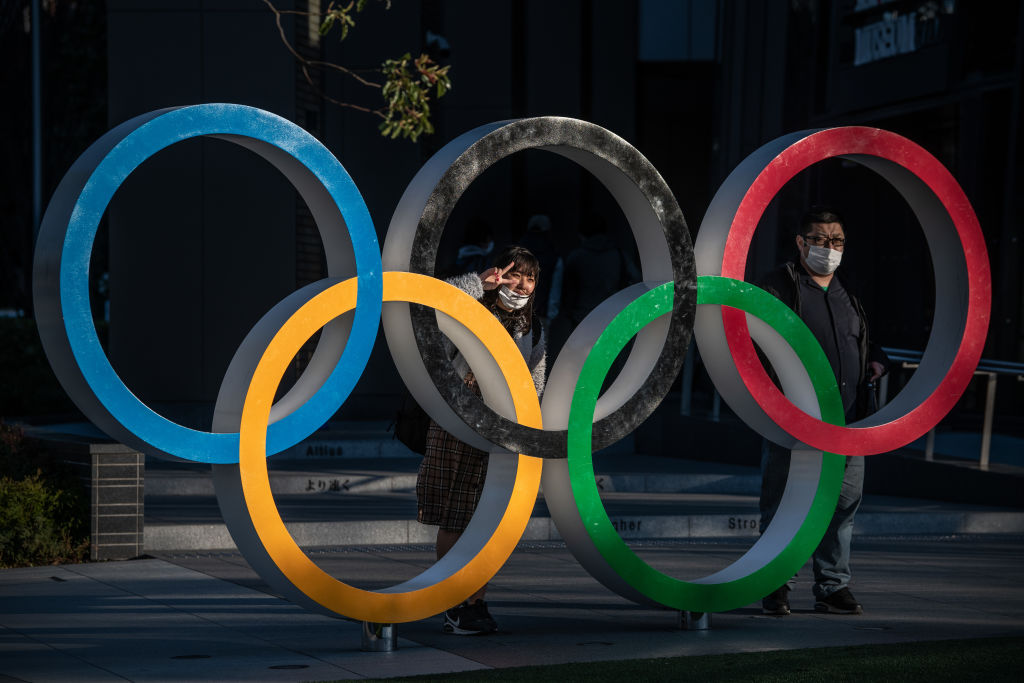Olympic Games could be scrapped if coronavirus impedes 2021 date
IOC President Thomas Bach reveals postponement has cost billions

The President of the International Olympic Committee Thomas Bach admitted on Thursday that the Tokyo Olympic Games, rescheduled for 2021 amid the coronavirus pandemic, could be scrapped altogether if COVID-19 continues to be a public health risk into next year.
In an interview with BBC Sport, Bach shot down the idea of holding the Games 'behind closed doors.'
"This is not what we want," Bach told BBC Sport. "Because the Olympic spirit is about also uniting the fans and this is what makes the Games so unique that they're in an Olympic Stadium, all the fans from all over the world are together.
"But when it then would come to the decision... I would ask you to give me some more time for consultation with the athletes, with the World Health Organisation, with the Japanese partners."
Bach suggested there would be no Summer Olympic Games in Tokyo if the event cannot be held in 2021.
"You cannot forever employ 3,000 to 5,000 people in an organising committee," Bach said. "You cannot have the athletes being in uncertainty."
The 2022 Winter Olympic Games in Beijing are now scheduled just six months after the 2021 Summer Games in Tokyo, putting further pressure on an already packed global sports calendar.
Get The Leadout Newsletter
The latest race content, interviews, features, reviews and expert buying guides, direct to your inbox!
"You cannot every year change the entire sports schedule worldwide of all the major federations. You cannot have the athletes being in uncertainty," Bach said.
"You cannot have so much overlapping with a future Olympic Games, so I have some understanding for this approach by our Japanese partners."
Whether the Tokyo Games can go ahead in 2021 will depend on the World Health Organisation's recommendations and Bach said the IOC is committed to organising the Games "in a safe environment for all the participants".
"Nobody knows what the world will look like in one year, in two months. So we have to rely on [experts] and then take the appropriate decision at the appropriate time based on this advice."
The IOC is looking at several possible measures to ensure the Games can go ahead, such as quarantines for athletes or other participants.
"What could this mean for the life in an Olympic Village and so on? All these different scenarios are under consideration and this is why I'm saying it's a mammoth task, because there are so many different options that it's not easy to address them [now]," Bach said.
"When we have a clear view on how the world will look on 23 July, 2021, then [we will] take the appropriate decisions."
The cost of postponing the Games is having a huge financial impact on the IOC and local organisers, with the IOC setting aside $800 million to offset the costs of rescheduling. The cost to the Japanese organisers is estimated to be between $2 and $6 billion.
The overruns will likely cause the Games to look different as the IOC and organisers focus on the essentials and less on the 'nice-to-haves'.
When asked why the Games hadn't been postponed sooner, Bach said it was a balance between optimists who suggested waiting to make a decision and others who pushed for immediate action.
"We could have said, 'Okay, this is it' [and cancel them]. We would have got our money being paid by insurance. And we could have started to prepare for Paris [in 2024]. But this was not a real option because this would have deprived the athletes of this unique Olympic experience."
This week, the German Bundesliga resumed playing without spectators, a move that offered some relief for Bach and for sports fans in general.
"I wish that now all the other sports are coming back," he said. "On the other hand, I was a little bit feeling for the players, how strange it must be for them, playing in these huge stadiums...
"So I hope now that is the first step. Sport has to respect the rules, like any other organisation and area of society. But that slowly, we can come back and then maybe lift these restrictions in a responsible way."
He also called upon the world's governments to support sport organisations that have taken a financial hit in the coronavirus closures.
Cyclingnews is the world's leader in English-language coverage of professional cycling. Started in 1995 by University of Newcastle professor Bill Mitchell, the site was one of the first to provide breaking news and results over the internet in English. The site was purchased by Knapp Communications in 1999, and owner Gerard Knapp built it into the definitive voice of pro cycling. Since then, major publishing house Future PLC has owned the site and expanded it to include top features, news, results, photos and tech reporting. The site continues to be the most comprehensive and authoritative English voice in professional cycling.